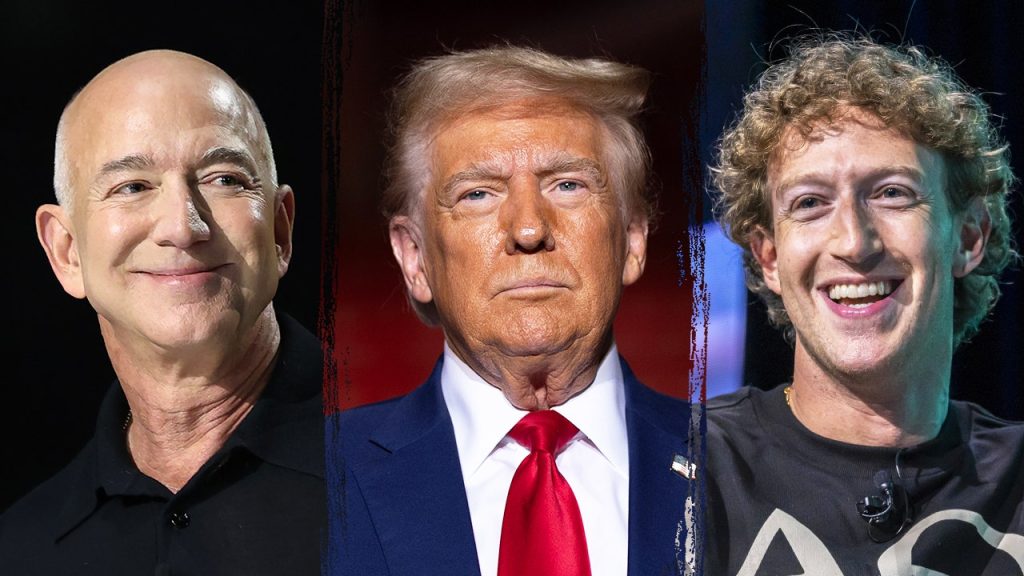The inauguration of President-elect Donald Trump for his second term has witnessed a significant shift in corporate allegiances. Companies that previously clashed with Trump during his first term and throughout the 2024 election cycle are now contributing substantial sums to his inaugural festivities. This dramatic turnaround highlights the pragmatic nature of corporate engagement in politics, where past grievances often take a backseat to the pursuit of favorable policies and access to power.
Meta, the social media giant led by Mark Zuckerberg, exemplifies this pragmatic shift. Despite past tensions, including Trump’s suspension from Facebook and Instagram and accusations of election interference, Meta has pledged a $1 million donation to the inauguration. This follows a reported meeting between Zuckerberg and Trump at Mar-a-Lago after the election, suggesting a thawing of relations. The donation underscores Meta’s likely interest in navigating the regulatory landscape of the new administration and maintaining a functional relationship with the president.
Similarly, Amazon, whose founder Jeff Bezos also owns The Washington Post, has pledged $1 million to the inauguration despite a history of public sparring with Trump. Previous criticisms from Trump regarding Amazon’s tax practices and Bezos’ ownership of the Post, which Trump often labeled “fake news,” seem to have been put aside. Bezos’ expressed optimism about Trump’s deregulatory agenda following the election indicates a willingness to cooperate with the administration on policy matters beneficial to Amazon.
The automotive industry also presents a striking example of this realignment. Ford, which previously defied Trump’s rollback of California’s emissions standards, has announced a seven-figure donation to the inauguration. This reversal signals Ford’s intent to engage constructively with the new administration, despite past disagreements. Other major automakers, including GM and Toyota, have followed suit with $1 million donations each, suggesting a broader trend within the industry to foster a positive relationship with the incoming president.
Intuit, the financial software company, has also pledged a $1 million donation despite potential conflicts of interest stemming from the Department of Government Efficiency’s (DOGE) consideration of a free tax-filing app, a move that could impact Intuit’s business. This contribution suggests a strategic decision by Intuit to engage with the administration despite the potential threat of government competition, possibly aiming to influence policy decisions or mitigate potential negative impacts.
These substantial donations from companies that previously clashed with Trump demonstrate the fluid nature of corporate political engagement. While past conflicts may have fueled public narratives, the post-election period reveals a prioritization of pragmatic considerations. Companies appear to be setting aside past disagreements to secure a place at the table of the new administration, aiming to influence policy, maintain market access, and navigate the evolving regulatory landscape. This dynamic reflects the enduring influence of presidential power and the calculated maneuvers of corporations seeking to safeguard their interests in the political arena.

